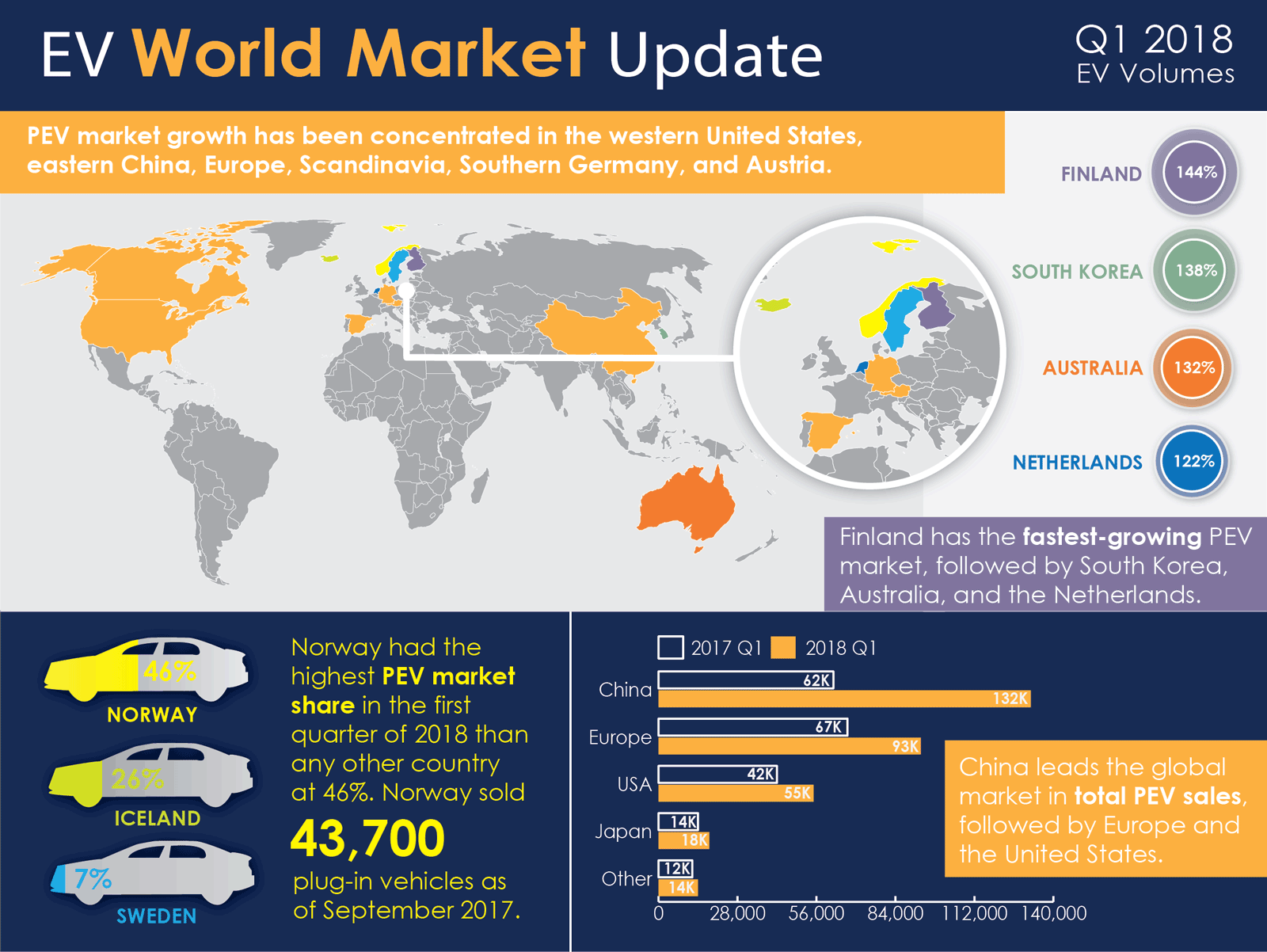As the Trump administration retreats on zero-emission vehicle leadership, it’s worth remembering that electric vehicles are part of a global market. In a recent blog post, Tom Turrentine and Kathryn Canepa at UC Davis made it easy to visualize the world map of where EVs are selling:

Overall, there is a lot of good news about the sales trajectories both globally and within individual countries:
In 2017, the global PEV market [including battery and plug-in hybrid electric vehicles (EVs)] grew by 65%, hitting 1.2 million PEV sales. During the first half of 2018, sales grew at an even faster pace.
….
Fastest growth? That would be Finland, with 144% market growth from last year. South Korea (+138%), Australia (+132%), Netherlands (+122%), Spain (+118%), and Canada (+114%) are following closely. China’s already-established market grew 113% from 2017.
Turrentine and his UC Davis colleagues separately lay out the top five policy recommendations for jurisdictions to boost electric vehicle sales in a new report [PDF]. They include:
- Vehicle purchase incentives
- Reoccurring incentives for driving electrically
- Robust charging networks
- Widespread consumer understanding of and experience with zero-emission vehicles
- Regulations on automakers to encourage EV production
Within the United States, California is certainly following this playbook. And as we can see from the map above, a number of other jurisdictions — notably China and Europe — are also following suit.
Which is why the U.S. as a whole now risks getting left in the dust by this growing global industry.


